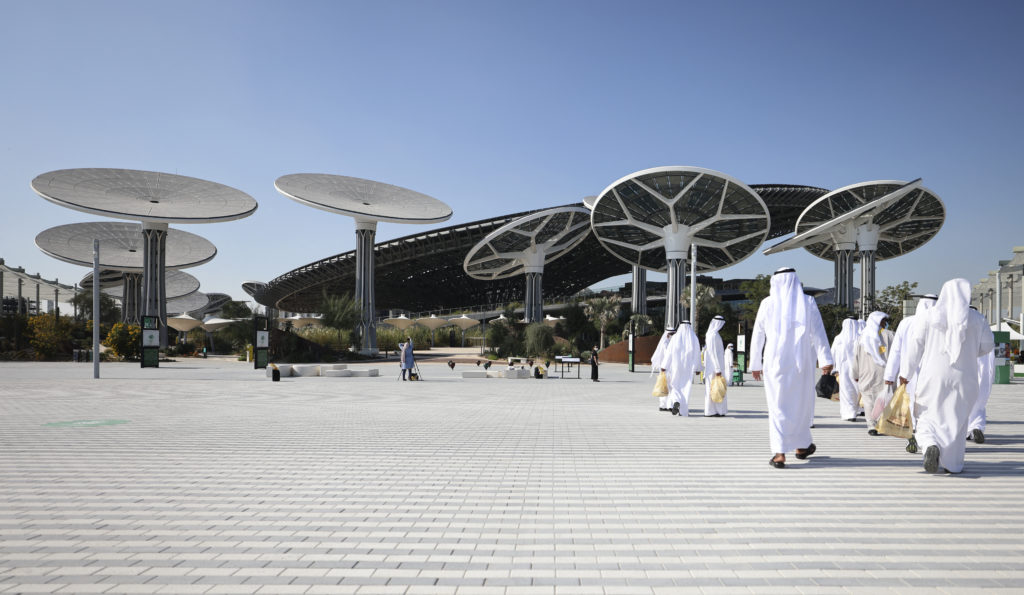São Paulo – The emirate of Dubai reduced its carbon emissions by 21% last year with a series of initiatives, such as increasing the share of solar energy in the local power matrix, improving operational efficiency in factories and facilities, recycling waste for energy production, treating waste, and implementing actions in industry and land transport. Pictured above, solar panels used in the Expo 2020 Dubai Sustainability Pavilion.
The announcement was made by the Dubai Supreme Energy Council at a meeting chaired by Ahmed bin Saeed Al Maktoum, chairman of the Supreme Council. Many topics were discussed at the meeting, including the results achieved by the Dubai Carbon Reduction Strategy 2030. The goal is to reduce the emirate’s carbon emissions by 30% by the end of 2030 in support of the UAE’s efforts to achieve carbon neutrality by 2050.
At the meeting, plans to consolidate the low-carbon economy were reviewed. “The development and implementation of existing programs and projects have had a positive and tangible impact, reflected in the rates of carbon emission reductions over the past ten years,” said the Council vice chair, Saeed Mohammed Al Tayer. According to him, this highlighted the efforts made by the authorities supporting a sustainable green economy and the UAE’s vision to achieve zero carbon emissions.
Read also: Dubai completes 85% of waste-to-energy project
The meeting was also attended by Ahmed Buti Al Muhairbi, secretary-general of the Supreme Energy Council of Dubai; and board members Dawood Al Hajri, director-general of Dubai Municipality; Abdulla bin Kalban, managing director of Emirates Global Aluminum (EGA); Saif Humaid Al Falasi, CEO of Emirates National Oil Company (ENOC); Juan-Pablo Freile, general manager of Dubai Petroleum; and Hussain Al Banna, acting CEO of the Strategy and Corporate Governance Sector of the Road and Transport Authority (RTA).
Translated by Elúsio Brasileiro




